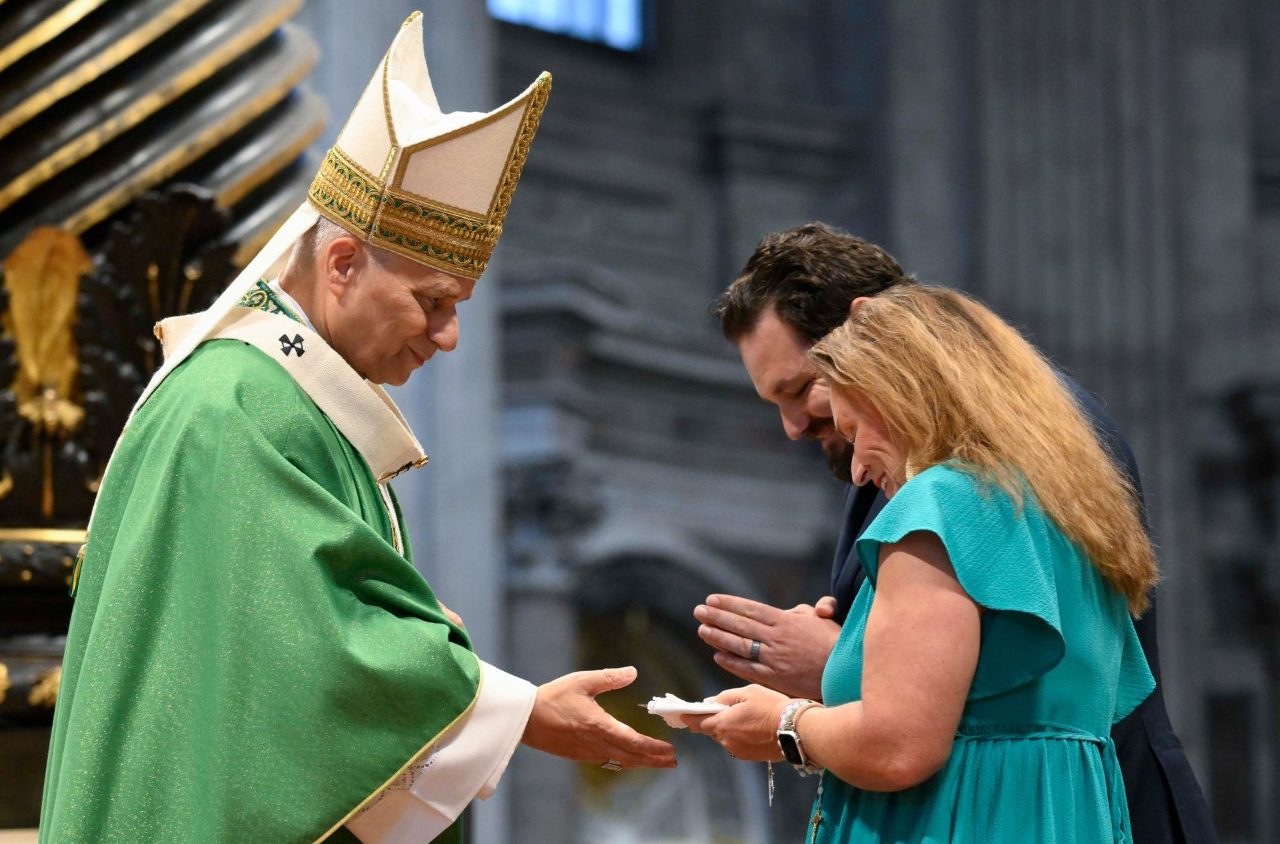Pope: ‘The supreme rule in the Church is love’ and ‘No one is excluded."
Let us “make our own the suffering and the hope of the [. . .] victims of war,” said Leo XIV after the Angelus. Hopefully, “many gestures of evangelical charity, concrete closeness, and solidarity” will emerge. The “truth is not possessed, but sought together,” he said in the homily of the Jubilee Mass for the synodal teams and the participatory bodies.
Vatican City (AsiaNews) – Pope Leo XIV spoke this morning after the Angelus, at the end of the Holy Mass dedicated to the Jubilee of the synodal teams and participatory bodies.
In his address, he said that, as October comes to an end, “Our prayer for peace continues unceasingly, particularly through the communal recitation of the Holy Rosary. As we contemplate the mysteries of Christ together with the Virgin Mary, we make our own the suffering and the hope of the children, the mothers, the fathers, and the elderly who are victims of war.”
From St Peter's Basilica, where he led the Mass at the Altar of Confession, flanked by Cardinal Mario Grech, Secretary General of the Synod of Bishops, the pontiff said: May “from this heartfelt intercession arise many gestures of evangelical charity, concrete closeness, and solidarity. To all who, each day, carry forward this commitment with trusting perseverance, I say once again: “Blessed are the peacemakers!”
The pontiff expressed his closeness to the people of Mexico affected by floods that have killed dozens of people. “I pray for the families and for all who are suffering because of this calamity, and I entrust to the Lord, through the intercession of the Blessed Virgin, the souls of the deceased.”
In his homily, Leo XIV noted that the Jubilee of the synodal teams and participatory bodies reminds us that the Church “is not merely a religious institution, nor is she simply identified with hierarchies and structures.” In the Church, “participatory bodies [. . .] express what occurs within the Church, where relationships do not respond to the logic of power but to that of love.”
In the Church, “No one is called to dominate; all are called to serve. No one should impose his or her own ideas; we must all listen to one another. No one is excluded; we are all called to participate. No one possesses the whole truth; we must all humbly seek it and seek it together.”
Noting that the teams are an "image" of a "Church that lives in communion,” he encouraged Jubilee participants with these words: “[B]y listening to the Spirit in dialogue, fraternity and parrhesia, you will help us to understand that, prior to any differences, we are called in the Church to walk together in the pursuit of God. By clothing ourselves with the sentiments of Christ, we expand the ecclesial space so that it becomes collegial and welcoming” so as “to live with confidence and a new spirit amid the tensions that run through the life of the Church.”
Thanks to the Spirit, tensions can be changed ensuring that “they do not become ideological contrapositions and harmful polarizations. It is not a question of resolving them by reducing one to the other, but of allowing them to be purified by the Spirit, so that they may be harmonized and oriented toward a common discernment,” the pope said.
A synodal Church “means recognizing that truth is not possessed, but sought together, allowing ourselves to be guided by a restless heart in love with Love,” able to build a “more humble Church,” like the publican in the Temple who, unlike the Pharisee, asks God for "mercy" as a sinner, and for this "will be exalted,” as told in the parable in today's Gospel (Luke 18:9-14).
The Church “bends down to wash the feet of humanity; a Church that does not judge as the Pharisee does the tax collector, but becomes a welcoming place for all; a Church that does not close in on itself, but remains attentive to God so that it can similarly listen to everyone.”
Indeed, “Let us commit ourselves to building a Church that is entirely synodal, ministerial and attracted to Christ and therefore committed to serving the world.”
The Holy Father concluded his homily citing Father Tonino Bello, the venerable Italian bishop who asked Mary to nurture "the desire of communion” in the Churches so that they can overcome “internal divisions,” “discord,” “factionalism,” “mutual disputes,” and “rivalries.”
“Stop them (the Churches) when they decide to go their own way, neglecting convergence on common projects,” Leo said invoking Mary.
06/02/2021 14:49
21/03/2020 13:13
10/05/2025 11:18
24/10/2025 12:59







.png)










